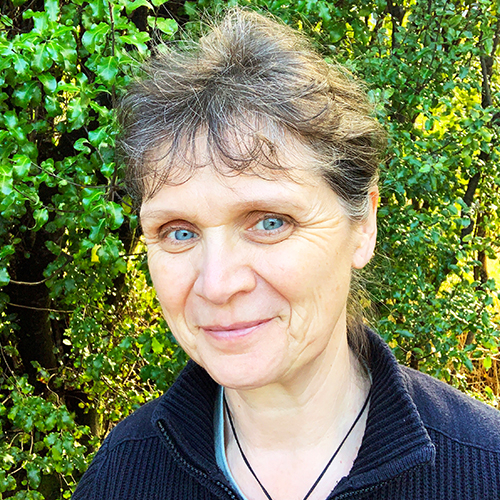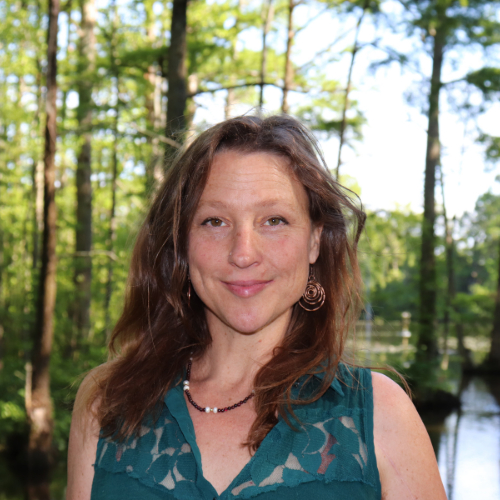 Birth Complications Online Course(s) & Continuing Education
Birth Complications Online Course(s) & Continuing Education
Access the latest clinical skills and research for Birth Complications for PREGNANCY, LABOUR & CHILDBIRTH professional training. These Birth Complications online courses provide practice-changing skills and valuable perspectives from leading global experts. This Birth Complications education has been accredited for a variety of CEUs / CERPs and can be accessed on-demand, at your own pace.


Silke has practiced as a midwife in a range of birth environments for many years. She is also a midwifery educator, working with undergraduate and postgraduate midwives. She originally hails from Yorkshire, UK, but has lived and worked for many years in Marlborough, New Zealand, and more recently has 'crossed the ditch' to Tasmania, Australia.
This presentation is developed from the findings of a structured review of evidence, entitled 'How effective is the presence of meconium-stained amniotic fluid as a predictor of neonatal morbidity and mortality?' undertaken as a Master of Midwifery dissertation at the University of Leeds, UK, back in 2005. A discussion of her findings – 'Holy Meconium' - was published in Essentially MIDIRS in 2013 and she has since presented at conferences. She continues to keep abreast of theories, research findings and practice implications relating to meconium.
In 1903, Whitridge Williams declared “A characteristic sign of impending asphyxia is the escape of meconium”. It’s unlikely this statement was founded on robust, peer-reviewed research, though there has since been research a-plenty based on the underlying inference that in-utero meconium passage is associated with poorer outcomes. Had researchers instead begun with questioning if meconium is indeed an independent marker for those poorer outcomes, then we may nowadays have a better understanding of why most infants with a poor outcome do not pass meconium in labour (Greenwood et al 2003) and most babies exposed to meconium liquor are born in good condition.
Using the findings from an extensive review of the literature, this presentation will begin by exploring the theories of meconium passage. It will review the research that is currently shaping our meconium guidelines (meconium as pathological) and analyse the data that supports the concept of meconium passage as a physiological, i.e., ‘normal’, event. Then, using the evidence, it will critique the current assessment and management practices of meconium labours and infants born through meconium.
Does meconium deserve its reputation as an omen for poor outcomes? Or have we been unjustly scared meconiumless??


Avril is the founder of the Midwife Method - a midwife-led, supportive and educational online program dedicated to empowering all birthing people who want to experience a conscientious and connected pregnancy, birth and transition into parenthood. Who want to learn to thrive in body, mind and spirit and not only feel prepared and informed every step of the way...but loved, supported and guided throughout. This incredible resource is available for busy midwives to count on, to provide for all the educational needs of their clients to have a healthy, joyful and empowering pregnancy, birth and smooth transition into parenthood.
For the past four years, she has loved being an instructor and office manager with Birth Emergency Skills Training® (B.E.S.T.), as well as co-developer of the Online and Hybrid programs. B.E.S.T. is dedicated to improving maternal and fetal outcomes by helping midwives effectively, efficiently, competently and confidently manage emergencies when they arise.
She has been intimately woven into the fabric of serving birthing families since 1998 working at home and in birth centers. Together with her partner, she has home-birthed, home-schooled and raised 3 incredible human beings (18, 24 and 26)!
With an unquenchable thirst for knowledge and desire to support a broader population in attaining their health goals, she returned to school, completing a Bachelor of Science in nursing in 2016, then pursued a Family Nurse Practitioner degree at Georgetown University which she was unable to complete due to unforeseen circumstances.
Topic: STOP Postpartum Hemorrhage in its TRACs - [View Abstract]
Despite the many advances in medical treatment, postpartum hemorrhage (PPH) remains one of the leading causes of maternal mortality around the world. Excessive bleeding plays a role in 25-35% of maternal deaths, and the United States (US) is no exception. In the US, postpartum hemorrhage was responsible for 12% of maternal deaths in 2016 and that figure is rising.
STOP postpartum hemorrhage in its TRACs offers a clear, up-to-date overview of postpartum hemorrhage using the mnemonic TRAC as a guide. TRAC stands for the 4 primary etiologies of PPH - Trauma - Retained Placenta - Atony - Coagulopathy. In this lecture, we present the physiology behind each etiology, prevention, early recognition and responsive, effective management from the least invasive to the most invasive stabilization techniques including anti-hemorrhagic medications, treatment for shock, the use of Non-pneumatic Antishock Garment (NASG) and a host of other life saving options. Treatments are adapted for out of hospital practice including low resource global applications.
Come join us and learn to effectively, efficiently and calmly manage PPH, alleviate fear, increase your confidence and improve maternal outcomes.

The Remarkable Transition From Liquid to Air at Birth: The Implications for Neonatal Resuscitation

Karen H. Strange is a Certified Professional Midwife (1996), American Academy of Pediatrics/Neonatal Resuscitation Program Instructor (1992).
She is founder of the Integrative Resuscitation of the Newborn workshop, which includes the physiology of newborn transition. She teaches the “when, why and how” of helping newborns that are either not breathing or not breathing well, with incredible clarity. She helps the provider have a sense of what the baby is experiencing which leads to a more appropriate response to newborns in need. Karen has done over 1,000 hours of debrief/case reviews regarding resuscitation. She is an international speaker and has taught over 14,000 people worldwide. There are many neonatal resuscitation instructors but Karen teaches practical neonatal resuscitation, regardless of the place of birth. And her teachings instill a strong sense of confidence and competence in providers, so they can respond in the least traumatic way.
Topic: The Remarkable Transition From Liquid to Air at Birth: The Implications for Neonatal Resuscitation - [View Abstract]
Topic: When You Know Better, Do Better - [View Abstract]
Topic: When, Why and How to Breathe for Baby at Birth: More than Neonatal Resuscitation and the Failures in Resuscitation - [View Abstract]
Karen Strange delves into the subject that she knows best: neonatal resuscitation! Karen has accumulated over 1000+ hours of case reviews from birth professionals across the globe. From these debriefs, she’s identified exactly what gets missed, typical misunderstandings and the role that fear and panic play when delivering skills. In this presentation, Karen clearly explains and defines the when, why and how to respond to a newborn either not breathing or not breathing well, while providing trauma-free care regardless of where the baby might be born. At a fully equipped hospital, in a developing country or at home. You’ll leave her presentation with a new sense of clarity and deeper understanding as you confidently respond to babies who need your help.











